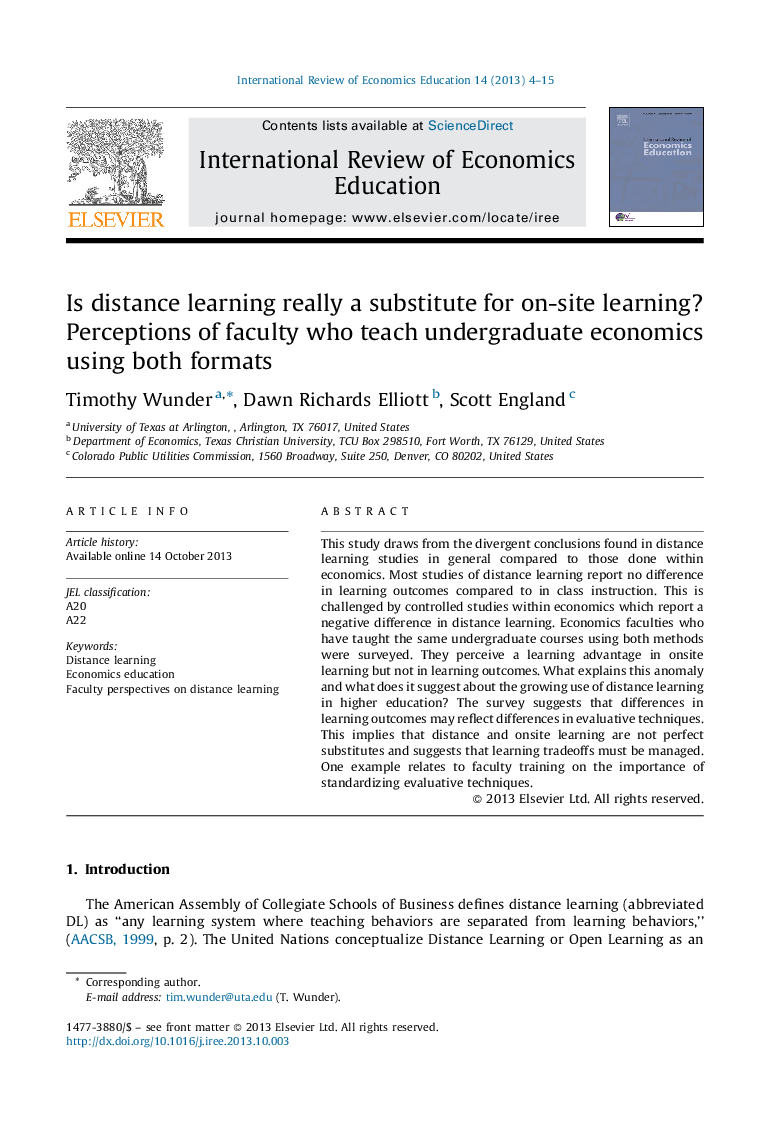| کد مقاله | کد نشریه | سال انتشار | مقاله انگلیسی | نسخه تمام متن |
|---|---|---|---|---|
| 357514 | 1435549 | 2013 | 12 صفحه PDF | دانلود رایگان |
This study draws from the divergent conclusions found in distance learning studies in general compared to those done within economics. Most studies of distance learning report no difference in learning outcomes compared to in class instruction. This is challenged by controlled studies within economics which report a negative difference in distance learning. Economics faculties who have taught the same undergraduate courses using both methods were surveyed. They perceive a learning advantage in onsite learning but not in learning outcomes. What explains this anomaly and what does it suggest about the growing use of distance learning in higher education? The survey suggests that differences in learning outcomes may reflect differences in evaluative techniques. This implies that distance and onsite learning are not perfect substitutes and suggests that learning tradeoffs must be managed. One example relates to faculty training on the importance of standardizing evaluative techniques.
Journal: International Review of Economics Education - Volume 14, September 2013, Pages 4–15
